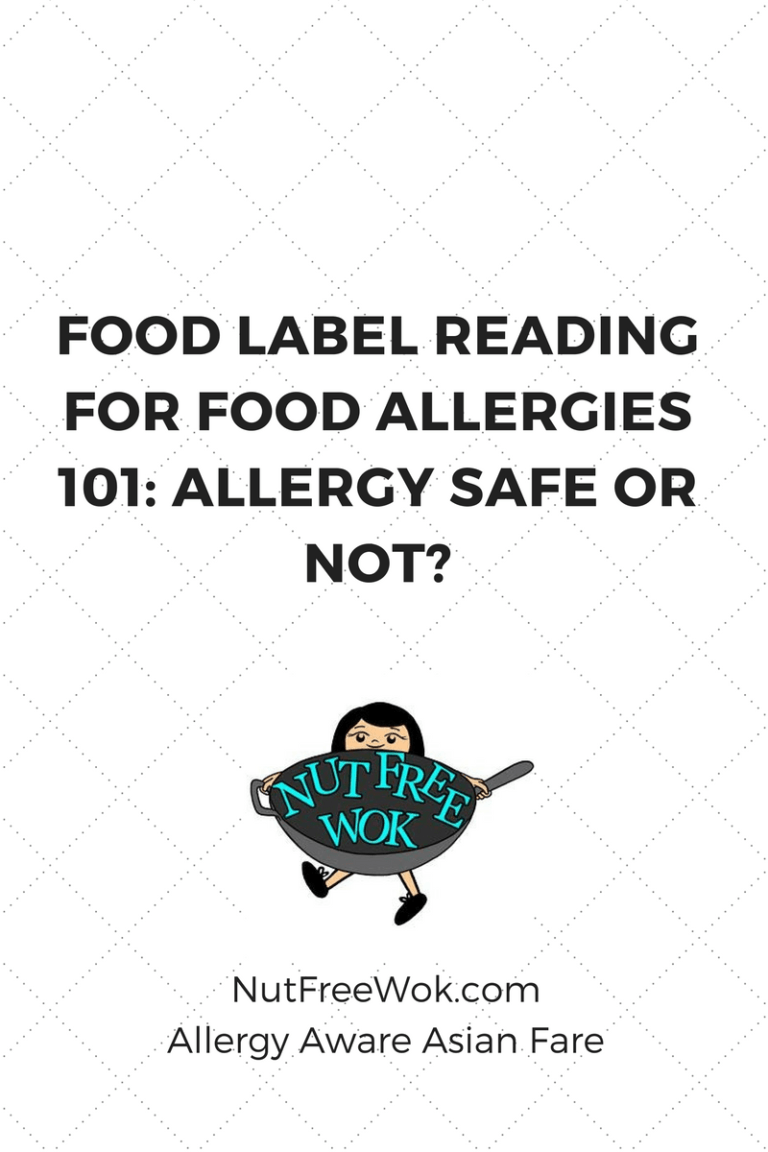
Food allergy mom, Vivian Stock-Hendel, shares this guest post about 504 plans as a resource for parents who have school age children with food allergies.
Disclaimer: This post is for informational purposes and do not regard as medical or legal advice. Please consult a professional for advice. As an Amazon Associate, I earn from qualifying purchases.
Starting Kindergarten with Food Allergies
The first day of kindergarten is a huge milestone in the life of a family. Even for more seasoned parents, the first day of back to school is rather bittersweet. How many parents have taken pictures at the classroom door or dried tears, sometimes our own? We wonder if our children will adore their teachers, will they have fun and learn, will they make friends? We hope that their day goes smoothly but if not, that a kind individual will help them.
But what if our children have food allergies? How do we know that our children will be ok, that precautions will take place to prevent an allergic reaction? Will their teachers be ready to follow an Emergency Care Plan, have the presence of mind to use an epinephrine auto-injector and call 911? How will we have peace of mind every school day for 13 years from K-12 ? I am fairly certain that every food allergy parent’s heart skips a beat to see their child’s school on caller ID and is relieved when a kind voice on the other end says, “Suzy is fine, it’s not an emergency…” and suddenly, almost anything they say after that is fine.
Create a 504 Plan for Safety & Inclusion
One way to ensure the safety and well-being of our food allergic children is to collaborate together with school personnel to create a 504 plan. People often ask about 504 plans in my food allergy support groups and I have one friend, Vivian Stock-Hendel, who is quick to help others by sharing dozens of links to related resources and answering questions. I invited Vivian to be my very first guest blogger on Nut Free Wok because she is a freelance writer, an articulate and passionate food allergy parent advocate, who has many years of experience successfully advocating for her child in the public school system. Vivian and I hope that this post will answer some questions about 504 plans: why are 504 plans needed, what are 504 plans, what should they say, and how to obtain one?
Vivian has compiled a list of resources for your reference however kindly bear in mind that both Vivian and I are parents like you, facing similar situations and challenges. You may have specific questions which should be referred to your legal professional. I am grateful for Vivian’s willingness to share her story below and to compile some resources found online. ~Sharon

Food Allergy 101: 1, 2, 3…504 Plan! By Vivian Stock-Hendel
Sending your child to school with a life threatening allergy can be frightening and overwhelming. When my son was first diagnosed in second grade, children with severe food allergies were not eligible for a 504 Plan. I read our school district’s food allergy policy. It was very basic. Our allergist also told us some of the things we needed to be safe at school and offered to write a letter to his school. I spoke to my son’s teacher and the school principal to make arrangements. We were lucky that his teacher had a younger sister with a peanut allergy. She already knew how to use an Epi-pen, had seen anaphylaxis first hand, and was willing to do whatever was needed to keep our son safe. The school agreed to an extra set of medication in the classroom in addition to the set in the office. Hand washing was already in place. There was no allergen table so we made a lunch plan for him. But nothing was written down except the medical emergency plan and the mandatory school district medication forms.
Safety was addressed but inclusion wasn’t. My son had his own treat box in the classroom just in case food was brought to the classroom. But this made him feel different. And he had to answer the questions his classmates or their parents asked. Why wasn’t he eating the yummy cupcake his classmate’s Mom made or bought at a bakery? Or, this donut doesn’t have a nut on it, why isn’t it safe? What happens if you eat it? Even though the school had a “no food for birthdays” rule, parents violated it all the time. I was one of two room parents so that gave me a little more notice for classroom events with food. I tried to be the provider of all foods for two class parties allowed so that they would be allergen free. But I wasn’t in control and I was often blindsided by parents sending his allergens to the classroom. I was always putting out fires. Luckily he did not have a serious reaction.
Schools may offer you an Individual Health Care Plan (IHCP). An IHCP is usually based on school district policy and outlines a care plan in the event of an emergency as well as measures taken to prevent an allergic reaction. It is written but is not legally binding. There are no complaint procedures if the plan isn’t followed. Often these informal plans are reactive rather than proactive. They address safety, but not inclusion, much like the agreement we made when my son was first diagnosed. There is no recognition of a disability. Some school districts will include this document in the 504 plan.
The ADA Amendments Act of 2008 broadened the definition of a disability to include hidden disabilities such as severe food allergies. This changed everything. Because severe food allergies were recognized as an ADA disability, your child now has legal rights to accommodations to put them on an equal footing with their non-disabled peers. If your child is attending a public school or a private school that receives any federal funding you can request a 504 Plan. The “504” in “504 plan” refers to Section 504 of the Rehabilitation Act and the Americans with Disabilities Act (ADA). This law states no one with a disability can be excluded from participating in federally funded programs or activities, including elementary, secondary or postsecondary schooling. Section 504 guarantees students with disabilities will be provided appropriate services to meet their individual needs to the same extent as the students without disabilities are met.
In other words, Section 504 guarantees that students with disabilities will receive the services necessary to get all the same benefits of an education as all other students. This law also provides that disabled students will be educated in the least restrictive environment (LRE) to the fullest extent possible. And these services will be provided at no cost to the students or their parents, in other words, a free appropriate public education (FAPE). A 504 is a formal legally binding written agreement with complaint procedures. There is also a “child find” provision in the law. Schools are supposed to evaluate students for a 504 Plan if they suspect eligibility.
In essence, a 504 Plan levels the playing field. If you child’s disability means they must use a wheelchair, it is clear to all that they need a ramp to freely access the school. But when your child has a hidden disability, like severe food allergies, it isn’t clear to all what their “ramp” looks like. What does your child need to ensure safety and inclusion? A 504 Plan should answer that question in detailed precise language.
To start the 504 process, submit a written request to your child’s school 504 coordinator explaining that their disability, anaphylaxis, affects major life activities—breathing and eating. Include a letter from your allergist documenting the life threatening allergy and explaining if your child reacts to ingestion, contact, and or airborne allergens. If your child has been prescribed an epinephrine auto injector, they should be eligible but it is not automatic. The diagnosis alone doesn’t insure eligibility. Each case is looked at individually and the burden of proof is on you.
Some schools or districts still are not up to speed on the eligibility of 504’s regarding food allergies. Some may tell you that your child is not eligible because they are doing well academically so they don’t need a 504. In the latter case, they are probably confusing the 504 Plan with the Individuals with Disabilities Education Act (IDEA), which provides educational services for children with special needs through an Individual Education Plan (IEP). In either case, educate them by using materials on the government’s website. You can call the Office of Civil Rights (OCR) for your region in charge of enforcing 504 Plans. They will give you guidance and materials to help you educate your school. Hopefully, your school has already written 504 Plans for other students with food allergies and are knowledgeable. Ask for any denial of the 504 to be documented in writing. This is needed if you choose to file a complaint with the OCR.
Once eligibility is established by the school district, a meeting will be held to discuss accommodations and write the 504 Plan. Depending on your school district, the 504 team could include the 504 coordinator, the principal or other school administrator, teachers, school nurse, special education specialist, food service management or a district representative as well as the parents. You are your child’s advocate at this meeting. Bring a friend to take notes and give moral support. Your role is to educate your school about your child’s needs. You know your child best. Try to keep your emotions in check and explain your position clearly. This team should work together to come up with what’s best for your child in a written 504 Plan.
In preparation for the meeting, make a list of accommodations that your child needs to navigate all situations that may occur during the school day and after school. Think of your child from the time they leave your home until they return. Your allergist may have input into what accommodations your child needs. Bring a copy of your child’s emergency plan signed by their allergist. Bring your accommodations requests to the meeting and a letter from your allergist backing you up if you have one. The CDC has recently issued “Voluntary Guidelines for Managing Food Allergies In Schools and Early Care and Education Programs” (see link below). Read these and bring them to the meeting as a reference and starting point. Some states have written school food allergy guidelines, check on the web if your state has done so (see link below).
Here are some areas to address when drafting your accommodation requests:
- The School Environment Is the school nut free? Is food service nut free? Is the school allergen aware? Nut free zones? Allergen free designated areas? Food free areas? Enforcement of food related rules?
- The Classroom Is food present? Snacks? School supplies? Allergen free or food free classroom? Food rewards? Technology? Musical instruments? New set of textbooks for their use? Hand washing? Cleaning for allergens? Label reading and safe snack lists? Foods used in the curriculum? Signage? Is the classroom used for other purposes?
- On the School Bus How will medical emergencies be handled? Is food allowed? Medications? Self-carried, transferred by staff? Who is trained to administer? Assigned seat?
- Cafeteria How will your child’s food be handled? Will they bring or buy lunch? Is a safe meal offered? Where will they sit? Allergen free table offered? Who will clean the table? How will lunch be supervised? Does your child need an aide? Separate areas where nut products eaten, a peanut gallery? Hand washing? Hand sanitizers do not remove food proteins.
- Recess/Playground/Fire Drills Medications? Monitoring? Allergens present? Staff walkie-talkies? Access to medicine?
- Illness/Absences Any illness should be viewed through the eyes of anaphylaxis. Your child should not be left alone or sent to the nurse’s office without adult supervision. When should parents be contacted? Does everyone know your emergency plan? Is their medical condition resulting in excess absences?
- After School Activities/Fundraisers Will your child be safe and included? Are your child’s allergens present? Is food involved?
- Holidays/Celebrations/Lockdowns How will food be handled? How will safety and inclusion be ensured?
- Gym How are medications stored during gym class so they are immediately available? Who will monitor your child in the locker room?
- Medications You want life saving medications to be immediately available. Will your child self-carry? Will staff carry? How will they be stored? Many school districts require a set of medications be stored in the medical office but they should not limit you just to these.
- Staff training, including substitutes Who will be trained in food allergy awareness, food allergy management, anaphylaxis recognition, and proper use of your child’s epinephrine auto injector? When will the training occur? How will substitutes be made aware of your child’s food allergies? Will long term subs be trained? Training of all school staff should be a goal. Who will provide the training?
- Field trips Is the field trip safe and inclusive? What trained staff will accompany your child? Are parents given the option of attending? How will food be handled? How will transportation be handled for the student and attending parent?
- General Food Allergy Awareness Request an assembly to educate students and staff. This goes a long way to reduce food allergy bullying and creates a positive community attitude.
- Privacy Who knows your child’s medical information? How will it be shared and with whom? You have privacy rights under Family Educational Rights and Privacy Act (FERPA).
- Notifications Request advance written notice of events involving food so you can make a plan for your child and make sure they will be included.
- Responsibility Who is responsible for carrying out each accommodation in the 504? Does anyone oversee?
Other things to keep in mind. Document all meetings and phone conversations by writing a letter of understanding. Try to do things by email so you automatically have documentation. This guarantees that everyone is on the same page plus creates a record if you decide to file a compliant. You are forging a long-term relationship with your child’s school. In any relationship, they are going to be misunderstandings, mistakes, and disagreements. Work together to resolve these problems. If the school isn’t following your 504 Plan, document each violation. You may want to file a complaint with the OCR especially if safety is being ignored. This is a simple process and can be done on line. The OCR also provides technical assistance to you and your school. If your 504 Plan accommodations no longer ensure safety and inclusion, reconvene the 504 team to amend your Plan. View the 504 as a living document, not written in stone. Most school districts review the 504 annually or if you change schools or districts. Every three years 504 Plans are reviewed for eligibility.
If your child has an Individual Education Plan (IEP) under IDEA for another condition such as a learning disability, your 504 accommodations for their food allergies should be added to their IEP. Many school districts are confused and will say you can’t have a 504 because you have an IEP. Sometimes schools will create a separate 504. But since the IEP offers more protection, it is preferable to add to the existing IEP. The 504 Plan protection is encompassed by IDEA. If your child’s food allergies are affecting their academic performance, you may be eligible for an IEP without another qualifying condition. If a student has long or frequent absences due to illness, they may need extra academic instruction to catch up if they are falling behind. It may not be easy but you may be able to establish eligibility.
Resource Links:
1. Food Allergy Management Policies for Schools:
CDC Voluntary Guidelines for Managing Food Allergies In Schools and Early Care and Education Programs
http://www.cdc.gov/healthyyouth/foodallergies/pdf/13_243135_A_Food_Allergy_8.pdfWeb_50
Caring for Students With Food Allergies, Loudoun County Public Schools, 2010. Great example of a School District Food Allergy Policy.
Safe at School and Ready to Learn: A Comprehensive Policy Guide for Protecting Students with Life-threatening Food Allergies, Second Edition. National School Board Association.
https://www.wrightslaw.com/info/allergy/School.Manual.2012.NatlSchBoardAssoc.60pages.pdf
List of States with School Food Allergy Guidelines, Food Allergy Research and Education (FARE)
http://www.foodallergy.org/laws-and-regulations/guidelines-for-schools
FAACT’s Civil Rights Advocacy Section 504 Resources
https://www.foodallergyawareness.org/civil-rights-advocacy/civil-rights-advocacy-resource-center/section-504/
2. U. S. Department of Education, Office of Civil Rights:
Parent and Educator Resource Guide to Section 504 in Public Elementary and Secondary Schools, U.S. Department of Education Office for Civil Rights, December 2016
https://www2.ed.gov/about/offices/list/ocr/docs/504-resource-guide-201612.pdf
Protecting Students With Disabilities, Frequently Asked Questions About Section 504 and the Education of Children with Disabilities
http://www2.ed.gov/about/offices/list/ocr/504faq.html
The Civil Rights of Students with Hidden Disabilities Under Section 504 of the Rehabilitation Act of 1973
http://www2.ed.gov/about/offices/list/ocr/docs/hq5269.html
OCR Complaint Processing Procedures
http://www2.ed.gov/about/offices/list/ocr/complaints-how.html
U. S. Department of Education, The Law underpinning Section 504, 34 C.F.R. Part 104
This page has been deleted, but I’m leaving the URL here in case I find a pdf of it online. http://www2.ed.gov/policy/rights/reg/ocr/edlite-34cfr104.html
Mystic Valley OCR Due a Process Hearing Decision: establishes a classroom free of peanut and tree nut products as a reasonable accommodation
http://www.doe.mass.edu/bsea/decisions/03-3629.pdf (downloadable file)
Questions and Answers on the ADA Amendments Act of 2008 for Students with Disabilities Attending Public Elementary and Secondary Schools
http://www2.ed.gov/about/offices/list/ocr/docs/dcl-504faq-201109.html
Parent and Educator Resource Guide to Section 504 in Public Elementary and Secondary Schools, U.S. Department of Education Office for Civil Rights, December 2016
https://www2.ed.gov/about/offices/list/ocr/docs/504-resource-guide-201612.pdf
3. Formulating a 504 Plan:
504 Plan/IHCP Discussion Document, Anaphylaxis and Food Allergy Association of Minnesota
http://minnesotafoodallergy.org/sites/default/files/504PlanDiscussionDocument.pdf
Sample 504 Plan for Food Allergies
http://blog.onespotallergy.com/2012/09/sample-504-plan-free-to-click-and-print/
Sample 504 plan from Kids with Food Allergies
https://kidswithfoodallergies.org/living-with-food-allergies/planning-for-school/section-504-plans-for-students-with-food-allergy/
FAACT Sample Accommodations for 504 Plans/IEPs
https://www.foodallergyawareness.org/media/accommodations/section-504/5.%20Sample%20Accommodations_FINAL%20with%20Logo_09.04.18.pdf
4. More about 504 Plans and IHCPs:
504 Plans, IHCPs, ECPs: Food Allergy School Health Care Plans, Kids With a Food Allergies
School Resources, Kids with Food Allergies
https://kidswithfoodallergies.org/living-with-food-allergies/planning-for-school/
Food Allergy School Health Plans, Kids With Food Allergies, Webinar Video
How to Obtain a 504 Plan, Thriving with Food Allergies
http://thrivingwithallergies.blogspot.com/p/turning-your-food-allergy-worries-into.html
Toolkit for Managing Food Allergies in the Classroom, FARE
https://www.foodallergy.org/resources/food-allergies-classroom
Discrimination: Section 504 and ADA
http://www.wrightslaw.com/info/sec504.index.htm
Letter to Zirkel
http://www.dueprocessillinois.org/zirkel.html
Wrightslaw: Advocacy
Getting Started at School, FARE
https://www.foodallergy.org/resources/getting-started-school
Will My Child’s 504 Plan for Allergies at School Still Have Clout? (August 2025)
5. Bullying, Inclusion, and other issues:
1 in 3 kids say they’ve been bullied because of their food allergy and parents are largely unaware
Food Allergy Bullying – What’s the Answer? AllergicChild.com
http://home.allergicchild.com/food-allergy-bullying-whats-the-solution/
Food Allergy Bullying: It’s not a joke
Social Consequences of Food Allergy by Catherine Alvarez
http://www.creativitypost.com/psychology/social_consequences_of_food_allergy
When a School Refuses to Protect a Child with Life-Threatening Allergies
http://www.wrightslaw.com/blog/?p=58
Resolution—Food Allergy and Anaphylaxis Management in Schools, The National PTA
https://www.pta.org/home/advocacy/pta’s-positions/Individual-PTA-Resolutions/ResolutionFood-Allergy-and-Anaphylaxis-Management-in-Schools
Anaphylaxis: Be Aware, Prepared and Ready to Respond, The National PTA
https://www.pta.org/home/family-resources/health/Chronic-Conditions/Anaphylaxis-Be-Aware-Prepared-and-Ready-to-Respond
Food Allergies: What PTOs and PTAs Need to Know
https://www.foodallergy.org/media/413/download (download pdf)
What is Really Needed to Clean Peanut Residue? How can schools make their facilities safe for peanut allergies? By Jeanette Bradley
https://www.verywellhealth.com/cleaning-in-school-for-children-with-peanut-allergies-1324112
Wrightslaw Anaphlaxis and Food Allergies Section
http://www.wrightslaw.com/info/allergy.index.htm
School Access to Epinephrine State Laws
https://www.foodallergy.org/school-access-epinephrine
Prepare to Meet the School on Allergy Needs – In 10 Easy Steps
https://www.allergicliving.com/2016/08/29/prepare-meet-school-allergy-needs-10-easy-steps
Educators, FARE
https://www.foodallergy.org/living-food-allergies/information-you/educators
Back to School Infographic, FARE (download)
https://www.foodallergy.org/media/308/download
Food Allergies in Early Childhood
https://www.foodallergy.org/resources/food-allergies-early-childhood
Thank you, Vivian, for putting all of these resources together to help other families with food allergies! ~Sharon
Additional resources:
Gina Clowes (AllergyMoms) recommended a book Wrightslaw: From Emotions to Advocacy to me when I reached out to her for help. I found the book to be an empowering book on how to navigate this process with very specific ideas that I hadn’t thought about. Know when you need to seek help from a professional advocate or a lawyer. ~SW
Thanks for reading, please help Nut Free Wok!
If you find this post helpful, please leave a comment and share this post! Your support means a lot to me.
Subscribe to Nut Free Wok’s email subscription (be sure to respond to the confirmation email). You will be notified by email next time I publish another post or recipe and I won’t send you spam or share your email address with anyone.
Disclosure/Disclaimer:
I may mention the names of stores and/or brand names of products that I use because readers ask and I share products and sources which I use and think may be helpful to readers, all opinions are my own. Please note that manufacturing practices and ingredients can change at anytime without notice and readers are always responsible for assuring allergen safety before buying or consuming foods. NutFreeWok.com is a participant in the Amazon Services LLC Associates Program, an affiliate advertising program designed to provide a means for sites to earn advertising fees by advertising and linking to Amazon.com. Thank you for reading!







Sharon,
I wasn’t sure what I was seeing was what I was seeing !! 504 Plan !!!! This might sound strange, but this warms my heart more than can know. I have been a staunch advocate for Special Education and 504 Plans for well over 25 years. As a matter of fact, my son was the very first student to have a 504 Plan in our school district !! This is when eyes were opened to include children with ADD/ADHD, btw I was the chair of the 504 Committee in our town, lol. Yes, he needed “some” help but I saw it as an opportunity to open the door for others to benefit from. It was originally referred to as the “Wheelchair” Act, purely physical accessibility to any building that received federal funding….even one penny. I could go on and on about this !! 504 and IDEA will always be my passion, ironically my first grandchild was born with Down Syndrome….go figure. So much more to the story!! If you would like to talk, I’d like that very much…. I am so very happy things are going well for your little one (not sure of age(s). Now, your site, so far so wonderful !!! I’ll keep you posted on my thoughts, LOL. !!!!
Thank you, Cathy! I am very passionate about 504 plans too but my friend, Vivian, who wrote this guest post is a fabulous resource. <3
I really really appreciated this detailed post and resource section. It was so helpful when meeting with the school regarding a 504 for my food allergic son for first grade. I’m happy to report it helped him to have a safe and INCLUDED successful first grade. We recently me to plan for second grade and feel like we are in good shape. Thank you both so much!
Yes!!! It’s wonderful to know that your son felt safe and included at school and good job advocating for him. We can all be informed and knowledgeable but it still takes really great communication and rapport on your part to make it happen. Give yourself a pat on the back! <3
Thanks so much for this. My son has food allergies (pn and tn) and has the same issues as your son did- different snack bucket, questions, left out, was even served a cupcake by a substitute teacher that was not approved by the school nurse… so I am starting the 504plan process for next year (first grade). Very scary world we live in! 🙁
Good luck, Nicole! I hope your son has a wonderful and safe year in 1st grade!
Thank you, Kathryn! I am so glad my article was helpful to you! I appreciate you including it in your resources.
What a great list of resources! I’ve used this post a few times now for my son’s 504, so thank you! PS – I also added this post to my list of permanent resources on my blog – I hope it helps others too!
Thank you, Kathryn! Vivian did a great job with her post and I’m so glad it’s been useful to help people understand what is a 504 plan so they can work collaboratively with their schools to keep their children safe. I love our supportive community of food allergy moms and warriors!
I would add one more thing, since it sounds like your school has no experience in writing a 504 for food allergies, I would call your OCR office for guidance. They will provide you with materials to show your school and give procedural guidance. You could supply these materials along with your written request for a 504 Plan and your doctor’s note to your school at the meeting. Sometimes have materials from someone other than the parent change the dynamic. I was the first at my son’s schools to request as well. It may be a longer process but worth it in the end.
Excellent article! Thank you for posting.
I am going through this right now as my son will be starting kindergarten in the fall.
I have spoken with the school nurse, principal and school psychologist. All three have told me verbally they do not have a 504 Plan for allergies. Though the approved school board policy does mention a 504.
The elementary school encourages in-class birthday parties with food from home, does not not want to ask parents to bring only store bought items, uses food as a learning tool in many lessons and has not provided me with allergy management policy that I can review. Very frustrating!
Kindergarten Orientation is this week and they have finally agreed to have the school nurse, principal and school psychologist meet me to discuss my concerns.
Any thoughts on how to proceed?
Thank you!
It’s great that you are starting early and change takes time and patience. Sounds like you are making progress if you have a meeting scheduled. It’s the beginning of a long relationship so my best advice is to go in with a positive attitude of teamwork but be prepared for the worst. I highly recommend reading over the documents listed, especially the ones written by OCR. It’s important to document everything in writing (accommodations and denials). Also have your allergist write a letter describing your child’s history and medically necessary accommodations. Good luck!
Thank you! I’m so proud of Vivian, she is so awesome and did a great job.
What a great, comprehensive post!